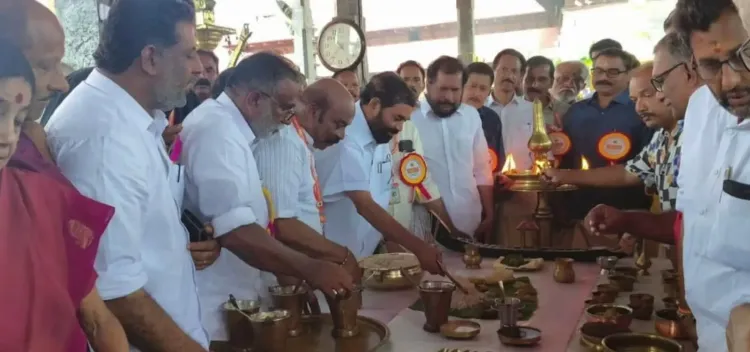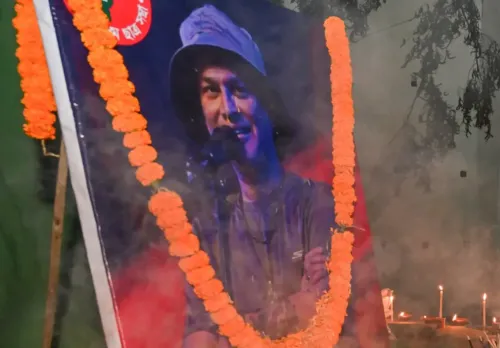Are Ritual Violations Emerging at Aranmula Temple After the Sabarimala Controversy?

Synopsis
Key Takeaways
- Ritual violations can lead to significant controversies in religious practices.
- The importance of adhering to traditional customs in temples.
- Temple authorities must address allegations transparently.
- Public adherence to ceremonial order is crucial for maintaining trust.
- Corrective measures are necessary to uphold religious integrity.
Pathanamthitta, Oct 14 (NationPress) Amid the turmoil surrounding the gold plating issue at the Sabarimala temple, a new controversy has arisen regarding the Aranmula Ashtami Rohini Vallamkali feast. Allegations of ritual violations have come to light.
The feast was presented to Devaswom Minister V.N. Vasavan prior to being offered to the deity, which constitutes a significant breach of longstanding temple customs.
The temple priest, Parameswaran Vasudevan Bhattathirippad, acknowledged this violation in an official letter sent to the Board, suggesting that public remedial actions are necessary.
According to the priest’s correspondence, the feast occurred on September 14, and since the offering from the last Ashtami Rohini has not been accepted by the deity, corrective actions are imperative.
The directive mandates that members of the Palliyod Seva Sangham, the Temple Advisory Committee, the Devaswam Assistant Commissioner, and the Administrative Officer must prostrate before the deity and make a monetary offering.
The feast is expected to include 11 measures of rice, and in Thidappally, one measure should be prepared along with four curries.
Once the sadhya is presented to the deity, it should be distributed to all attendees.
The letter underscores that all parties involved must formally pledge to prevent such lapses in the future and ensure that upcoming feasts adhere strictly to ritual practices.
While the Palliyod Seva Sangham previously denied any wrongdoing, the priest's acknowledgment of the violation has compelled the group to comply with the recommendations.
The directive explicitly states that participants must collectively affirm their commitment to avoiding similar errors in the future.
This incident underscores the temple’s rigorous adherence to age-old rituals and highlights the necessity of maintaining proper ceremonial order during significant religious occasions.









